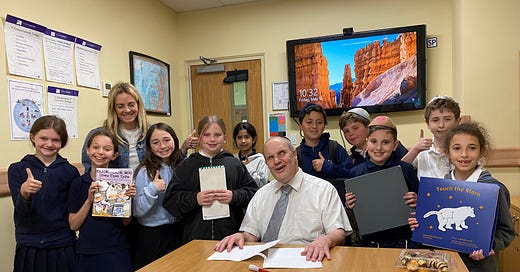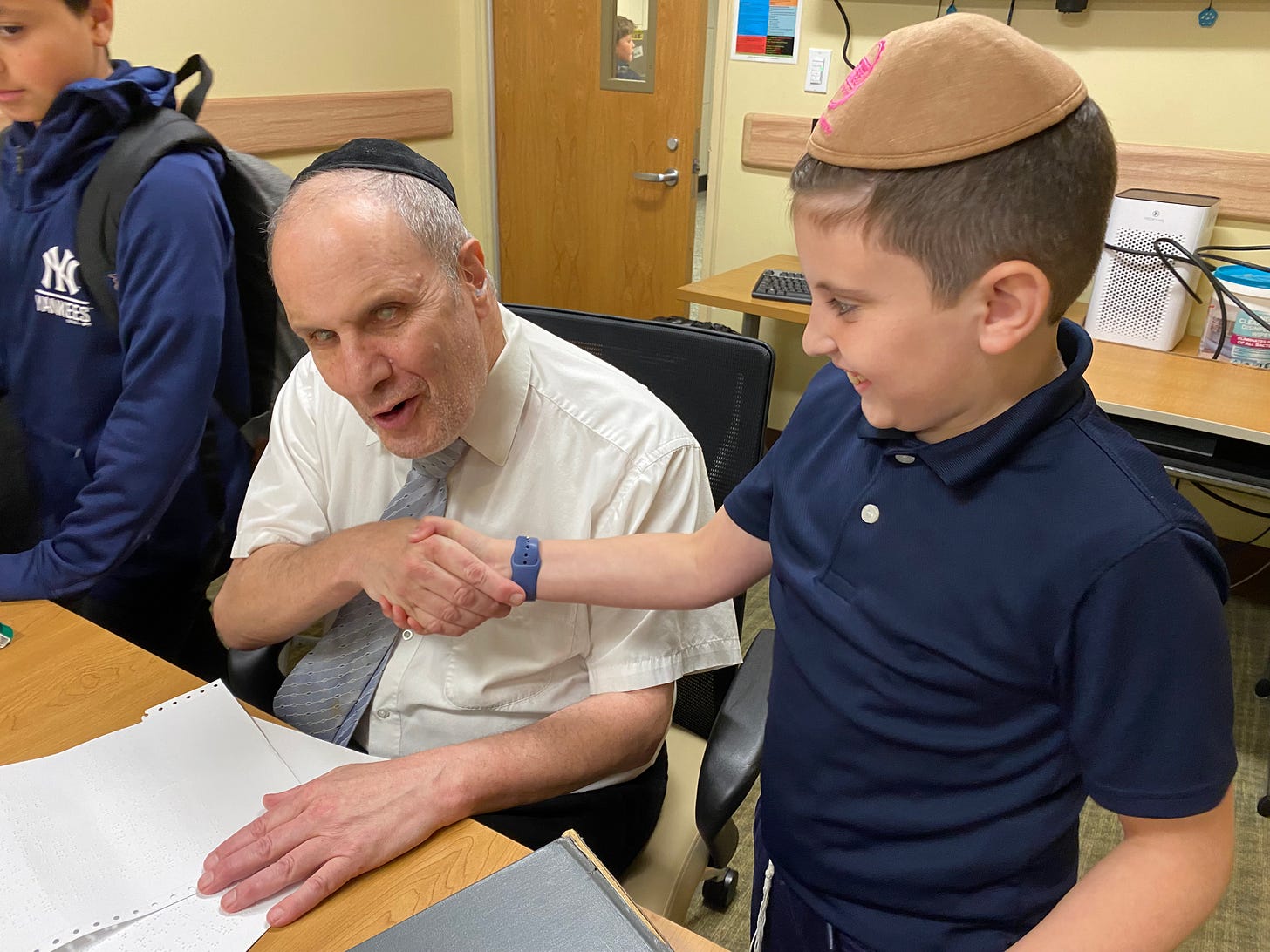“Simmmmmmmmmmchaaaaaaaaaaaah!”
Simcha was one of the fourteen nephews and nieces who came into my life the day I married Chavi, may her memory be for a blessing. He was playing hide-and-seek with me while his mother and my wife were having a conversation.
“Simmmmmmmmmmchaaaaaaaaaaaah!” “Where AM I?
He knew I was very nearby in the bathroom but couldn’t quite grasp that I was standing in the empty bathtub behind the curtain.
I began to pull and shake the curtain from behind.
“Ahhhhh!!!!”
Children want attention and fun from their relatives. They pick up, with no pity or worry, that a particular grown-up in the family reads with his fingers instead of his eyes or rolls on wheels instead of walking.
During the subsequent 39 years, with young relatives too precious to count and later my children and grandchildren, I developed a repertoire of games. Touch my finger and it will run away. Pinch my nose and I will talk funny. If you tickle me, I will give you a “silly potch” (a pretend spanking).
Word games, jokes, braille Scrabble and checkers. The more time you spend getting to know who a person with a disability is, the less you think about the disability.
The Grandpa with the Chocolate Prize
I recently spoke to elementary school students at HALB in my neighborhood. They learned how braille enables me to study, worship, speak in public without memorizing words, etc. Each received a “left-over” braille copy of Mishpacha Magazine. The student who asked the first question received a chocolate oat bar, because that’s what Grandpas do, whether or not they have a disability.
It is unfortunate that the” disability industry” sometimes uses pity to bring in funds. These students won’t fall for the myth that being disabled means being sad.
Hopeful vision of the Future
If 100,000 children got to know people with disabilities one-on-one in a “fun setting,” they would, as adults, find it more natural to hire us and date us.
Like Simcha, they’d learn that the man behind the curtain is not trying to conceal anything, but is, rather, a unique person like other human beings they are getting to know. They will become soldiers in the battle to eliminate disability bias.
A native of Bradley Beach, New Jersey, Rabbi Michael Levy attributes his achievements to G-d's beneficence and to his courageous parents. They supported him as he learned to travel independently, visited Israel, and became more Jewishly observant. For 65 years, JBI International supported him with braille and recorded Judaica material.
He received rabbinic ordination from the Jewish Theological Seminary in 1981 and an MSW from Columbia University in 1982.
As a board member and now President of Yad Hachazakah, Rabbi Levy strives to make the Jewish experience and Jewish texts accessible to Jews with disabilities. In lectures at synagogues, camps, and educational institutions, he cites Nachshon, who according to tradition boldly took the plunge into the Red Sea even before it miraculously parted. Rabbi Levy elaborates, "We who have disabilities should be Nachshons--boldly taking the plunge into the Jewish experience, supported by laws and lore that mandate our integration.”
He applauds Jewish Disability Inclusion News’s ambition to give voice not just to those who work with the disabled, but also to people with disabilities themselves. “About us? Not without us” he is fond of reminding those eager to listen, and the media to whom the maxim may be out of their comfort zone.
For over 20 years, Rabbi Levy served as director of Travel Training at MTA New York CityTransit. Now retired, he is an active participant in Congregations Aish Kodesh and Young Israel in Woodmere, New York. Most of all, he relishes the company of his children, grandchildren, and large extended family.





Dear Rabbi Levy, Thank you so much for this post. I really appreciated your point about how the” "disability industry” is often using people with disabilities to bring in funds. I pray as well that in the work for inclusion and direct communication we can all teach young people that, as you said, being disabled does not mean being sad, that people are people and difference does not need to be pitied.